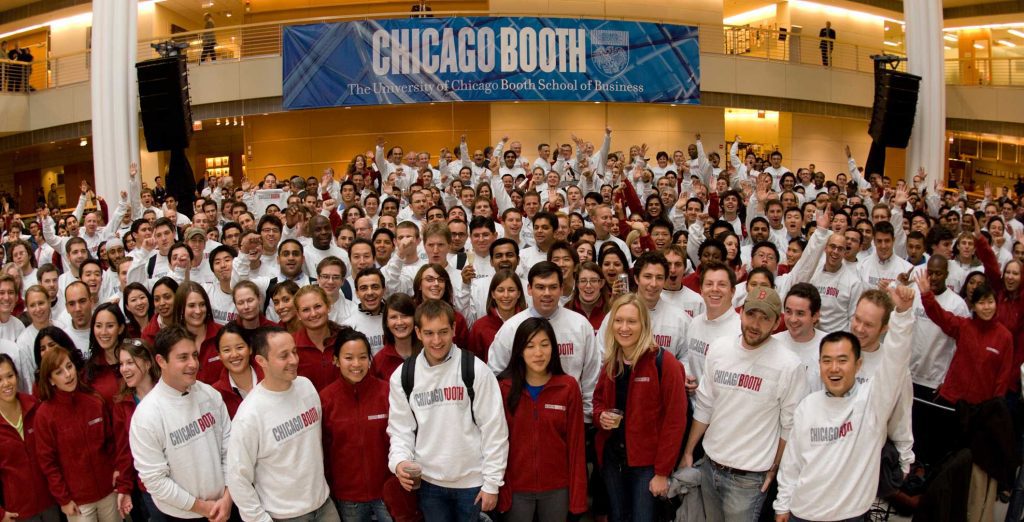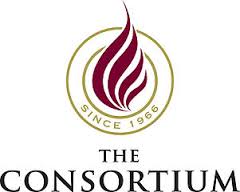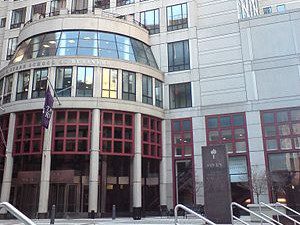Chicago Booth, Michigan Rise in New U.S. News Business School Ranking

The new, official U.S. News & World Report ranking of the best business schools in the United States has been released, with some minor shake-ups at the top. For the second year in a row, Harvard Business School remains tied for the first overall in the ranking. However, the University of Chicago Booth School of Business officially supplanted The Wharton School at the University of Pennsylvania, which fell back from its tie at the top to third overall.
The rest of the top ten, as we previously mentioned, largely resembled last year’s U.S. News release, except for the inclusion of the Ross School of Business at the University of Michigan and the exclusion of the Yale School of Management. Surprisingly, Michigan Ross may have made the strongest showing in the newest ranking, not only managing a position in the top 10, but landing tied for seventh overall—ahead of Columbia Business School and the Dartmouth Tuck School of Business. The Yale School of Management slipped to a tie at 11th overall with Duke University’s Fuqua School of Business.
U.S. News & World Report 2019 Best Business School Rankings
| Rank | School |
|---|---|
| 1st (Tied) | Harvard Business School |
| 1st (Tied) | University of Chicago Booth School of Business |
| 3rd | The Wharton School at the University of Pennsylvania |
| 4th | Stanford GSB |
| 5th | MIT Sloan School of Management |
| 6th | Northwestern University Kellogg School of Management |
| 7th (Tied) | University of Michigan Stephen M. Ross Business School |
| 7th (Tied) | UC Berkeley Haas School of Business |
| 9th | Columbia Business School |
| 10th | Dartmouth College Tuck School of Business |
Chicago Booth, Michigan Shine Among Rising Full-Time MBA Programs

For the first time in school history, the Booth School of Business secured its place atop of the U.S. News ranking (albeit tied with HBS). In a statement, Booth Dean Madhav Rajan noted, “We are pleased to be recognized in this manner, and gratified that the recognition is across the board. We continue to strive to be the pre-eminent academic school of business.”
After its place among the top ten business schools was revealed, Michigan Ross Dean of Business Scott DeRue stated in a release, “We are excited to once again be ranked among the top 10 MBA programs in the country by U.S. News & World Report. This recognition is a testament to the extraordinary talent at Michigan Ross, our innovations in action-based learning, our partnerships with leading companies across the globe, and the most supportive alumni community in the world. We are developing leaders who have the character and capabilities to transform the world through business, and it’s an honor to be recognized among the very best in the world.”
On its website, the school also proudly boasted that, outside of Stanford GSB, no business school in the ranking earned more top ten placements in specialty areas, earning high grades for: “Accounting (No. 4), Entrepreneurship (No. 7), Finance (No. 10), International (No. 5), Management (No. 3), Marketing (No. 4), Non-Profit (No. 5), Productions/Operations (No. 3), and Supply Chain (No. 6).”
Outside of the top ten, the USC Marshall School of Business watched its stock rise again this year. Two years ago, U.S. News handed USC Marshall the 31st spot on its best business school ranking, which jumped to 24th last year, and 20th this year. Just a few spots back of USC was the Jones Graduate School of Business at Rice University, which saw the largest leap of any of the top 25 schools—jumping six spots from the previous year.
Nine schools among the top 100 in the new rankings managed to jump at least ten spots, including three MetroMBA favorites: the Whitman School of Management at Syracuse University, the Neeley School of Business at TCU, and the Fordham School of Business at Fordham University. Whitman, in fact, tied for second highest rise, improving 18 spots overall from last year’s 88th overall placement to 70th this year. No school improved more, however, than the Weatherhead School of Management at Case Western Reserve University in Cleveland, Ohio, which improved a remarkable 22 spots from last year’s 77th overall placement to 55th this year.

The Syracuse University Whitman School of Management jumped 18 spots in the most recent U.S. News “Best Business Schools” ranking.
A handful of schools also secured a spot in the top 100 after not appearing at all the previous year, including the Howard University School of Business, the American University Kogod School of Business, and Argyros School of Business and Economics at Chapman University.
Which Schools Fell The Hardest?
Along with the Yale School of Management losing its prestigious top ten status, a handful of schools tumbled in the 2019 ranking—with some virtually flat-lining. No school fell more than the Poole College of Management at North Carolina State University, slipping an astounding 35 spots from 55th last year to 92nd this year. Eleven schools lost their top 100 status in total. The reasoning behind the sudden drops are likely linked to the publication’s change in how it ranks the business schools.
In regards to the ranking methodology, U.S. News placed less value in test scores and student GPA. In a release this afternoon, U.S. News reported the following:
“For the first time U.S. News reduced the value of reported GPA, GRE and GMAT scores for full-time and part-time MBA programs and GRE scores in the education rankings if less than 50 percent of an entering class submitted these scores. U.S. News believes this lack of data means the scores are not representative of the entire class.”
The change, arguably, could stem from the fallout of the Temple University Fox School of Business, which was knocked off all of the publication’s rankings for the 2018 calendar year because of falsely reported data regarding test scores.
Stay tuned to MetroMBA on all the biggest MBA ranking news.
March Madness Begins: Consortium MBA Draft Takes Place Today

Clear Admit recently highlighted this year’s Consortium for Graduate Study in Management MBA Draft, which is offering huge scholarship payouts for a lucky few. Check it out below.
No, it has nothing to do with basketball. A draft of another sort will take place today, but for some MBA applicants it could be as big as getting by the Golden State Warriors. We’re talking about the annual draft for the Consortium for Graduate Study in Management. Each year, the group’s member business schools offer tens of millions of dollars in fellowships to hundreds of MBA applicants, most under-represented minorities.
Held annually in mid-March, the draft is a complex matching up of leading business schools and applicants based on the order of preference expressed by each. Consortium member schools include the University of Michigan’s Ross School, UVA’s Darden School, UC Berkeley’s Haas School, Dartmouth’s Tuck School, and NYU Stern, to name just a few. When applicants apply as part of the Consortium Fellowship process, they benefit from being able to apply to six of the 19 members schools using a single application (with volume discounts for multiple schools). But then comes the tough—and critical—part.
The Importance of Ranking Your Consortium Schools Carefully
You have to rank your selected schools in order of your desire to attend, which will determine the order in which you’ll be considered for the Consortium Fellowship, a merit-based, full-tuition award. (There is the pesky little detail about needing to gain admission to a school or schools on your list.) Provided you are admitted to some or all of the schools on your list, your ranking then comes into play. If your first-ranked school declines to award you funding through the Consortium, the opportunity will be passed on to the next school on your list, and so on. According to a Consortium employee, the order in which applicants have ranked their choices is not revealed explicitly to the schools. Instead, each school is just not given an opportunity to offer you the fellowship until theirs is the top remaining school on your list.
Of course, another important part of the Consortium application is demonstrating a proven commitment to increasing the ranks of African Americans, Hispanic Americans, and Native Americans in business education and corporate leadership. The Consortium was founded in 1966 by Washington University professor Sterling Schoen around the mission of equipping more African American men with the requisite business skills to succeed in corporate America. Three schools and 21 men took part in the first year. Additional schools began to join as members, and in 1970 applicant membership was widened to women, Hispanic Americans, and Native Americans. In 2004, in compliance with a Supreme Court ruling a year earlier, membership was opened to all U.S. citizens and permanent residents who demonstrate a track record of supporting the Consortium vision.
Today’s Consortium MBA Draft Day
Fast forward to today, draft day. Representatives from the member schools are gathering with Consortium staff to begin the complicated matchmaking process, which at least in recent years has taken place in a St. Louis hotel room near the Consortium’s Chesterfield, MO, headquarters. Unless things have changed dramatically with recent additions to the number of member schools—the group has grown from 17 in 2011 to 19 this past July—the process includes six rounds and takes about four hours to complete.
Schools come in with their draft picks in hand, and the school designated as first choice by the most applicants gets to choose as many of those students as it wants to offer the fellowship. And so it continues, passing on to each successive school to select from its first-round applicants. If a school passes on an applicant at any time in the process, another school can then select that applicant in a later round.
From the applicant’s point of view, here’s what it looks like: Let’s say that Yale SOM is your first-ranked school and you are admitted into its MBA program. In today’s draft, Yale SOM will have first dibs on offering you the Consortium Fellowship. If Yale SOM does offer you the fellowship, everyone’s happy and you can choose to attend with the benefit of the fellowship. You may still be admitted to other programs on your list, but these programs cannot offer you the Consortium Fellowship.

But say you were admitted to Yale SOM but it doesn’t offer you the fellowship—or you don’t get into Yale—then the opportunity to offer you the fellowship is made available to your second-ranked school, and on down the line.
While only one school can offer you the Consortium Fellowship, that does not preclude the other schools on your list from offering you other school-specific scholarship funding. Once awarded by one school, the Consortium Fellowship is not transferable to another.
Regardless of whether you ultimately accept the fellowship and attend the school that offers it, you retain your Consortium membership status, granted as part of the application process. As long as you attend a school within the Consortium, you’ll get take advantage of a wide range of membership benefits, including valuable recruitment and networking events, webinars, and chats.
Why Would Anyone Turn Down a Consortium Fellowship?
Consortium member schools will typically select more students than they have fellowships for to account for the fact that some fellowship recipients will ultimately turn down their offers. What would make a fellowship applicant turn down a free ride to a top-ranked business school, you ask? Sometimes it’s admission to an even higher-ranked business school not part of the Consortium (Harvard, Stanford, Wharton, Columbia, Kellogg, MIT Sloan, and Chicago Booth don’t play the Consortium game). This becomes an easier decision if these other schools offer their own attractive financial aid enticements, which they often do. So in the coming Decision Week(s), keep in mind that schools that have picked you now get to anxiously await word of whether you pick them. It’s nice when the tables get turned, right?
The official Consortium Fellowship notification deadline is March 23rd, but we’d guess many schools will be eager to share the news of the fellowship award in tandem with the news of acceptance. It should be fun to watch on MBA LiveWire! Those of us here at Clear Admit are wishing luck to the applicants and schools involved in today’s Consortium MBA Draft and hope some terrific matches are made, resulting in hundreds of successful MBA careers and further expansion of the Consortium mission’s reach.
To those on MBA Livewire who have speculated about why some Consortium applicants learned of decisions from certain schools before stated decision deadlines, that’s also related to today’s draft. Consortium member schools will have needed to make admissions decisions for their potential drafts picks by today, regardless of the school’s own decision deadline. Some schools may choose to communicate those decisions to applicants early since they already will have been reached.
Learn more about the Consortium application process here. Applications for the Class of 2021 open in August 2018 are due in two rounds, the first in October 2018, and the second in January 2019.
What Is The Worst MBA Advice You Have Ever Heard?

The path to business school is paved with experts and know-nothing-know-it-alls alike—it’s just hard to tell the difference sometimes.
This is especially true when it comes to “dos” and “don’ts” of the trade. You’re bound to encounter confusing, conflicting, or just plain bad advice in any field but there’s something about business school that seems to attract meaningless jargon like flies to honey.
I spoke to Accepted’s Linda Abraham and North Star Admissions’ Karen Marks, two leading admissions counselors and bonafide MBA experts, about the eight worst pieces of advice most commonly doled out to MBAs-to-be.
“Tell them what they want to hear.”
“The admissions committee will see through it, the applicant will blend into the gray mass of applicants who are making the same mistake, and at competitive schools, will get dinged,” Abraham writes. “Telling schools what you think they want to hear means telling them what you don’t know, and it also means you’re not telling them what you want them to know.”
“If you are waitlisted, ignore the school’s directions and make a dramatic gesture to demonstrate your interest.”
According to Marks, “People … have been known to do everything from emailing the admissions office once a day (relatively benign, but inappropriate) to sending homemade gifts (creepy) to showing up in the admissions office and refusing to leave until they have spoken with the Dean. All of this backfires, it’s really important to listen to the school’s directions and express your interest in ways that underscore your ability to follow directions, and your understanding of the culture.”
“Change your career goals and personal story for each school.”
Marks explains, “Your goals and core narrative should remain constant, no matter what school you are applying to. Don’t tell Stanford that you want to work in micro-finance and Kellogg that you dream of marketing, just because you think it’s what they want to hear.”
Abraham recalls an interaction she had with “an applicant who came to us initially for Rejection Review.” This applicant was told by his consultant, a former Yale SOM adcom director, “she would have rejected him also because the applicant’s goal made no sense given his work experience, education and extra-curricular activities. He explained that his friends had told him to use the “hot” goal that year, so he used it in his application. Next year he applied with an authentic goal (and app) and was accepted to an M7 school.”
“You have no chance of getting into a top MBA program because you didn’t go to a top undergrad.”
Abraham couldn’t disagree more with this statement.
“If an applicant excelled at their local college, shows leadership, and has had an impactful career, and has a competitive test score, they have a chance at elite MBA programs,” she says.
“You have a 750-plus GMAT and a 3.9 GPA, you’re in anywhere.”
Both counselors call hogwash on this one.
“You can’t rest on academic laurels. Yes, those numbers are very attractive to top b-schools, but if they are combined with arrogance—forget it. Schools also want to see leadership and impact in their accepted students. So, if Super Student wasn’t a super employee or entrepreneur or campus community member, those stats do not guarantee acceptance at top MBA programs.”
“Your goals don’t really matter, because you’re likely to change them once at b-school.”
Abraham writes, “Yes, your goals are likely to change and schools know that, but they at least want you to start their program with direction and a goal they know they can help you achieve. Goals are a major component in fit at most top MBA programs. And if yours are vague or don’t match the strengths of your target schools, then you simply aren’t showing fit.”
“If you have a blind interview, you can wing it.”
“You can wing it. BUT you are unlikely to be as effective as the other applicants who prepare,” Abraham notes.
“They will have researched the school, know exactly why they want to attend this program, and mined their own experiences and achievements so they are ready to show they belong at the interviewing school and will contribute to the school’s student body and alumni network.”
“Oh, and they also have thoughtful questions to ask the interviewer.”
“You won’t get in if your numbers are below an arbitrary number, so don’t even bother applying.”
Abraham has worked with “multiple clients who had extremely low GMATs and GPAs, below 2.5 and below 600, who have been admitted to Wharton, Booth, HBS, etc. I also admitted applicants with weak numeric profiles to Tuck when I was the Associate Director of Admissions. (They had other stellar qualities).”
Abraham believes that “essays, personality, perspective and life experience are more important than numbers.” She adds, “Application reviews are comprehensive. One element is extremely unlikely to keep you out or carry you across the threshold of a dream MBA program.”
Yale Faculty Discuss the Global Network for Advanced Management

What happens when leading business schools join forces to increase their resources for students, faculty, staff, alumni and stakeholders? This is what the Global Network for Advanced Management (GNAM) set out to discover in 2012. Continue reading…
Admissions Tip: Considering the Campus

Continuing our series of admissions tips geared towards those individuals who are just beginning to think about their MBA applications, we wanted to offer some advice on factors to consider with respect to a school’s facilities and location. Whether speaking with current students or touring the campus for yourself, it’s helpful to approach these information-gathering experiences with as clear a sense of what matters to you as possible.
7 Takeaways from the 2018 U.S. News Business School Ranking

The schools making up the top 10 in this year’s U.S. News & World Report ranking of the nation’s best MBA programs—released today—were exactly the same as last year. That said, there are a smattering of surprises in terms of how top schools rose and fell relative to one another—and in movement among schools outside of the top 15.
At quick glance, here are this year’s top 10, in order of their 2018 rank (2017 rank in parentheses):
1 Harvard Business School (1)
1 University of Pennsylvania’s Wharton School (4)
3 University of Chicago Booth School of Business (2, tie)
4 Stanford Graduate School of Business (2, tie)
4 MIT Sloan School of Management (5, tie)
4 Northwestern’s Kellogg School of Management (4, tie)
7 UC Berkeley Haas School of Business (7)
8 Dartmouth’s Tuck School of Business (8, tie)
9 Yale School of Management (8, tie)
9 Columbia Business School (10)
With today’s release, students, alumni and administrators at Harvard Business School (HBS) can toast their school’s third consecutive showing at the top of the list. But the University of Pennsylvania’s Wharton School has even more cause for celebration, having tied HBS for first this year. It’s only the second time in 28 years it has claimed the No. 1 spot. It’s also an important rebound for the Philadelphia school, which fell to fourth last year as it was surpassed for the first time ever by the University of Chicago Booth School of Business.
Chicago Booth isn’t letting up, though. It took third place this year after tying Stanford for No. 2 last year. After never having cracked the top three before, Booth’s now done it two years in a row.
Perhaps the biggest news among the top 10—and the farthest fall from grace—was Stanford Graduate School of Business (GSB)’s slide into a three-way tie for fourth place with MIT Sloan School of Management and Northwestern’s Kellogg School of Business. Stanford has never before not clocked in at least third or above in the U.S. News ranking.
Rounding out the top 10 were Haas, Tuck, Yale and Columbia—very similar to last year except that Yale slipped slightly, from a tie at eighth with Tuck to a tie this year at ninth with Columbia. It’s a slight gain for CBS, meanwhile, which last year was 10th, behind Tuck and Yale in a tie for eighth.
7 Key Takeaways from the 2018 U.S. News MBA Ranking
We’ve sifted through the data and compiled a summary of things worth taking notice of this year:
1) Wharton Is the Year’s Big Winner
Wharton has traditionally been considered part of the “holy trinity” of schools, behind only HBS and Stanford in many people’s eyes. That made last year’s fourth-place finish behind Chicago Booth a real blow.
This year, the school fought back—seizing a shared claim to first place for only its second time ever. Strong employment and pay figures—85.6 percent of graduates employed at graduation and the highest reported average salary of all schools, $155,058—helped significantly.
“This is excellent news for Wharton—especially after last year’s showing in the U.S. News ranking and, more broadly speaking, in light of the constant (and not always positive) media attention the school has garnered due to controversial alum, President Trump,” says Graham Richmond, Clear Admit’s co-founder. “While many will quip about employment figures and how they favor the likes of HBS and Wharton vs. Stanford, the key—from Wharton’s perspective—is being squarely back in the ‘trinity,’” adds Richmond.

Booth School of Business
2) Booth Stakes Its Claim in the Top Three
Last year, Chicago Booth tied Stanford for second place—its first time ever outranking Wharton and also the first time the Chicago school had secured a top-three spot in the history of the U.S. News rankings.
Making it into the top three for a second year in a row helps dispel any notions of last year being a fluke. A climbing GMAT average (726) and high employment numbers (84.9 percent employed at graduation) have played a part in its rise.
3) Methodology Disadvantages Stanford
Because U.S. News’ methodology relies on “grades” from corporate recruiters and other employment stats that favor larger firms over startups or entrepreneurial pursuits, schools with large numbers of students going into tech startups or entrepreneurship—such as Stanford—are essentially penalized. Stanford may be further hurt—at least in terms of the U.S. News list—by the fact that its graduates are confident enough that they’ll land a plum job that they can be a little choosier about which offers they accept. Indeed, only 62.8 percent of its MBAs were employed by graduation—as compared to 85.8 percent at Wharton, 84.9 percent at Chicago Booth and 79.3 percent at HBS.
Of course, Stanford came out ahead in terms of average GMAT/GRE scores (737), average undergraduate GPA (3.73) and overall student selectivity. With an acceptance rate of just 6 percent, it was by far the most selective school of all those ranked, with HBS accepting 10.6 percent, Wharton, 19.6 percent, and Chicago Booth, 23.6 percent. But these factors are given less weight than peer assessments and corporate recruiter survey scores as U.S. News crunches its data.
4) Yale SOM Defends Its Position in the Top 10
This year marks the third time since 2013 that Yale School of Management (SOM) has ranked in the top 10, giving the school an increasingly legitimate claim to membership in this elite club. In this most recent ranking, the New Haven school tied for No. 9 with CBS. Last year it tied at eighth with Tuck—a five-spot jump over the previous year.
Yale has been making improvements on several fronts. In 2011, the school hired Dean Edward Snyder—the very same dean who sat at the helm of Chicago Booth during its meteoric rankings rise in the early 2000s. Yale has also been poaching high-profile faculty from other schools over the last decade, including Andrew Metrick, professor of finance, and Anjani Jain, current assistant dean, both formerly Wharton faculty.
Add to that the opening of glittery new facilities in 2014 and the school’s traditional strength and reputation as a leader in the non-profit and corporate responsibility areas—currently in vogue with millennials—and the school’s continued top-10 showing makes sense.
5) Columbia Regains a Spot, Sort of
CBS is battling to maintain its top-10 claim, and its tie this year with Yale for ninth is theoretically an improvement over its 10th place finish last year. But it’s still down from the No. 8 spot it successfully defended from 2012 through 2016. Contributing factors could include the rising cost of living in New York and declining interest among applicants in the financial sector—but that’s just conjecture.
As we noted last year, CBS is one of only a few schools in the top 10 that haven’t recently unveiled a new building or substantially expanded their facilities, which could be a liability. Construction is underway for an impressive new Manhattanville campus, but its projected completion date has been pushed off from the original 2018.
Yale’s moving into—and remaining in—the top 10 has also exerted downward pressure on CBS.
6) NYU Stern Gets Its Scores in on Time, Bounces Back from 20 to 12
Last year’s biggest shock was NYU Stern’s plummet from No. 11 to No. 20. But as U.S. News noted at the time, the reason for Stern’s sharp decline was the fact that it didn’t get its GMAT/GRE scores in on time. When it did get the scores in, U.S. News refused to recalculate the rankings.

NYU Stern
The drop of nine spots on the list did seem harsh—and pretty implausible. Indeed, this year’s No. 12 showing seems much more legit for the traditionally top-15 school—suggesting it got its scores in on time this year.
Again, Clear Admit’s Graham Richmond weighs in: “Last year’s NYU Stern/U.S. News rankings fiasco did not paint U.S. News in the best of lights. It felt like a petty slap on the wrist aimed at Stern and served to raise questions about the validity of the rankings, which were arguably no longer accurate where a key school was concerned. While it is nice to see things seemingly back to ‘normal’ this year, the issue highlighted the perils of a straight ordinal ranking that some suspect can be tweaked to sell magazines, rather than a tiered ranking that represents the true matriculation behavior we see among applicants seeking an MBA.”
7) Movers and Shakers Elsewhere in the Ranking
Of course, there are many business schools beyond the top 10. U.S. News ranked 131 schools in total. Further down in the rankings you see some more precipitous gains and losses. On the plus side, Arizona State University’s W. P. Carey School of Business and USC’s Marshall School of Business both cracked the top 25. Carey jumped 10 places to 25th, from 35th last year. Marshall moved up seven spots to come in just ahead of Carey at 24th.
The University of Virginia’s Darden School of Business slipped three spots to 14th, it’s second consecutive year of decline. Vanderbilt’s Owen School of Management also took a hit, dropping from 22nd to tie with Carey at 25th. Falling out of the top 25 altogether was Rice University’s Jones Graduate School of Business, which dropped to No. 29. This, despite its 11-spot leap to eighth place in Bloomberg BusinessWeek’s November 2016 ranking.
This article has been edited and republished with permissions from Clear Admit.
